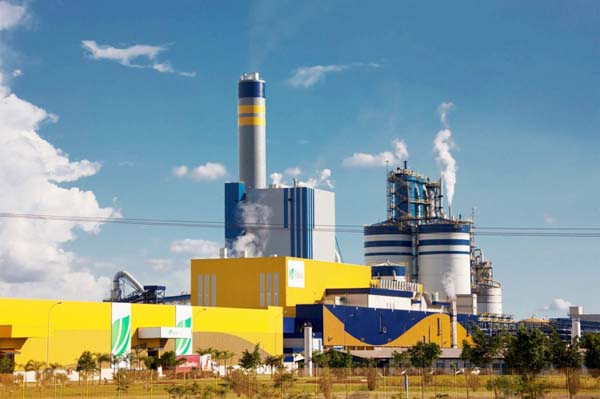Fibria Announces Construction of New Pulp Line at Três Lagoas Unit
Fibria, Brazil, this week announced that its board of directors approved the Horizonte 2 Project, which will expand its Três Lagoas unit in the state of Mato Grosso do Sul in Brazil. The new production line will have annual pulp production capacity of 1.75 million metric tons. Combined with its existing capacity, already in operation, the Três Lagoas unit will reach a total annual production capacity of 3 million tons, making it one of the world’s largest eucalyptus pulp production sites. As a result, Fibria’s total annual pulp production capacity, considering all of its units, will expand from the current 5.3 million tons to more than 7 million tons.

One of the largest private investments in Brazil focused on the export market, the amount invested in the Horizonte 2 project will reach R$7.7 billion (approximately S$2.5 billion) and draw on own funds from the company’s strong cash generation as well as third-party funding from various sources, such as the Brazilian Development Bank (BNDES), export credit agencies (ECAs), the Midwest Development Fund, commercial banks, and capital markets.
During the two years of construction, the Horizonte 2 project will create 40,000 direct and indirect jobs. During the peak of construction, the site will have around 10,000 workers. Once commissioned, Fibria’s new pulp line will have 3,000 direct and indirect jobs.
"The expansion of the Três Lagoas unit is in keeping with Fibria’s strategy of growth with discipline, which sees a window of opportunity for the commissioning of new pulp production capacity in the market in 2018. It is with great pride that we make this major investment in Brazil, which focuses on the export market and will contribute to Brazil’s trade balance, create new jobs, improve quality of life, and promote local, regional, and national development," said Fibria CEO Marcelo Castelli.
The execution of the Horizonte 2 project will engage around 60 local suppliers. During construction, Fibria will administer 500,000 hours of training in Forestry operations and another 390,000 hours of training in Industrial operations, which includes preparing both in-house and third-party teams. Construction will make an important contribution to the public coffers, with Fibria expected to pay around R$450 million in taxes during construction.
Fibria has already obtained the environmental licenses required for expanding the Três Lagoas unit, including construction permits. It is also already investing to develop the forest base in the region to ensure the future supply of the new production line. The supply of wood required for the new mill’s operations will come from forests cultivated in the state of Mato Grosso do Sul and planning is already underway for the new eucalyptus demand to be generated, which amounts to 174,000 hectares of Planted forests on owned, leased and partner areas, as well as future purchases of wood from third parties. Today the company already has a surplus of 107,000 hectares, including both planted areas or areas under planting contracts.
Fibria was a pioneer in developing the pulp industry in Três Lagoas. The company’s unit was inaugurated in March 2009, with an annual pulp production capacity of 1.3 million tons. Fibria’s initial investment attracted other investments by industry players to Três Lagoas, leading the city to gain recognition as the "pulp capital of the world."
The Fibria unit in Três Lagoas incorporates ecodesign concepts, with cleaner production processes and a pleasant and safe work environment. Additionally, all energy consumed is generated by the mill itself, using biomass in the form of eucalyptus bark and liquid biomass produced in the industrial process. With the Horizonte 2 project, the industrial unit, in addition to generating and consuming its own energy, will generate surplus power of 160 MWh, which will contribute to Brazil’s energy balance.
The pulp produced by Fibria at Três Lagoas will be transported by rail to the Port of Santos on the coast of São Paulo, for export to more than 40 countries.
TAPPI
http://www.tappi.org/

